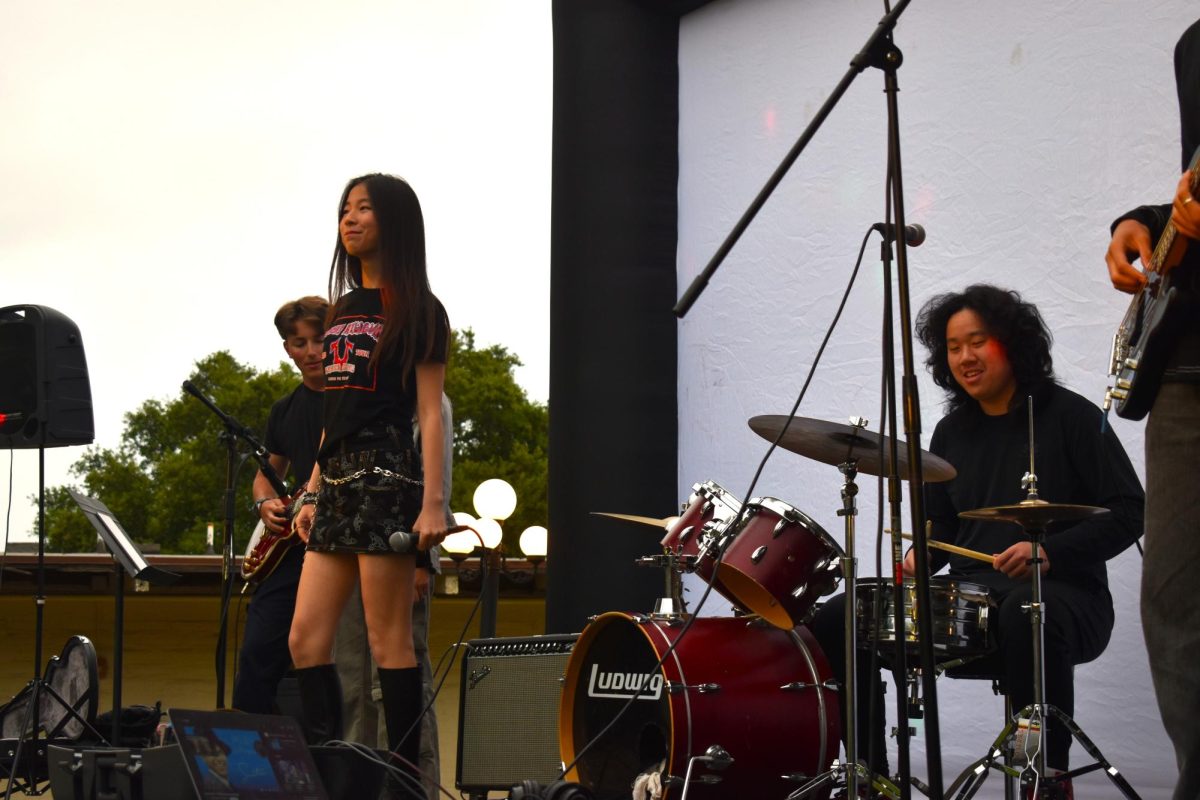Hanson Hu (‘23), an international student, begins his day at 8 a.m. in Beijing with his afternoon activity. Before his first class at 11:15 a.m., he eats breakfast and spends the rest of the time catching up on homework. In the afternoon, when evening classes end, he continues doing schoolwork before working out at around 5 p.m. Between 7 p.m. and 9 p.m. in the evening, he completes schoolwork again, and for the rest of the time in the day, Hanson spends time reading and painting.
Back at Webb, students’ daily schedules looked rather homogenous: after three blocks of 80-minute classes and Chapel, advisory, or class meeting commitments, students rest and attend afternoon activities, and evening study hours were the time to complete homework assignments and prepare for the next day. Despite the slight differences in activities and block schedules, most students enjoyed a similar and organized routine on school days. This unavoidably changed with online learning.
Now, daily schedules differ from student to student, and they look especially different for evening students located outside of the United States. Fortunately, with evening classes, students outside of the 14-hour time zone no longer have to stay up for classes or watch recordings, like many international students from other US high schools and colleges do. Under the heathier schedule, students get to sleep at a regular hour, just like they normally would back at Webb.
“Last semester I was in Los Angeles so I wasn’t asynchronous,” Shuci Zhang (‘23) said. “For asynchronous students, the schedule changed in the way that classes start later. It’s good because I get to sleep more.”
“I must say Webb has done a great job to accommodate us international students,” Michael Fu said (‘24). “I’m having a patterned routine and I enjoy my study and life.”
However, not all students enjoy such changes in schedules, because flexibility and more free time come at the expenses of shorter class hours and more work outside of the classroom.
“Classes are challenging with online learning,” Hank Sun (‘22) said. “The shortened class time does make it hard to learn and the little time we have for office hours isn’t always enough. Homework load has also been disproportionate to the class times.”
Looking at the bright side, shorter classes provide students with the unprecedented flexibility and freedom to determine their own schedules. After daylight saving, the first 45-minute block begins at 11: 15 a.m. CST, and the last block ends at around 2 p.m. for most students. Depending on the classes that students take, the daily schedule varies from day to day as well — if students only have one block on one day, the first class would not begin until 1:15 p.m. for some, meaning that the students would have the entire morning free. The flexibility has granted evening students the opportunity to take advantage of their time.
With a significant amount of free time in the morning before class, students can efficiently complete their work and do the things that they enjoy, including playing sports, exercising, and doing arts.
“I start my day with the museum afternoon activity in the morning, 7:15 a.m. Beijing time,” Michael said. “But to be honest, this was not as fun as I thought it would be in the first place, because there’s not much to do online, especially in the early mornings. The evening session starts from 11:15 a.m. to 2:15 p.m. which I felt very comfortable. There’s a free period in the morning that I would use for swimming and running, or just paint something.”
“I wake up at around 8 a.m. every day, eat breakfast, finish some homework and attend classes until 2 p.m.,” Eugene Guo (‘22) said. “I practice basketball between 2:30 p.m. to 3:30 p.m. and finish homework until dinner time at 7 p.m. when I spend some time with family.”
Compared with many of evening students’ peers from other US high schools who attend classes at midnight or watch class recordings in the morning, Webb international students can directly learn and interact in class in a time that works well for them. Thanks to Webb’s plan and effort to accommodate all students, local and international, evening students’ days have become healthier, and their learning schedules have become organized and easy to follow.
“As an international freshman, I have to admit that I was so disappointed in the situation that [is] not allowing me to go to school,” Michael said. “However, under these unusual circumstances, Webb’s faculty ha done well on making up for the students by having online evening sessions…The evening session is great. Teachers are responsible and try their best to make us feel comfortable, just like we normally would in the real classroom. After a while when we got used to this kind of form, we had discussions and debates and they all went very well… Canvas is pretty handy when you get used to it. I could know all the homework and feedback from the teacher.”
At the same time, students need to be organized in order to wisely spend their free time doing homework and the things that they enjoy. With an increased amount of free time and flexibility in daily schedules, time management has become unprecedently important.
“I can wake up later than last year, but I am definitely sleeping later as well,” Hanson said. “I feel like I have more work, but I have more free time as well.
Although the pandemic has made in-person learning and interactions difficult, it has also presented opportunities for students to excel at home while learning online. With extensive free time, evening students can especially take advantage of their schedule and manage it well to make every day count.















